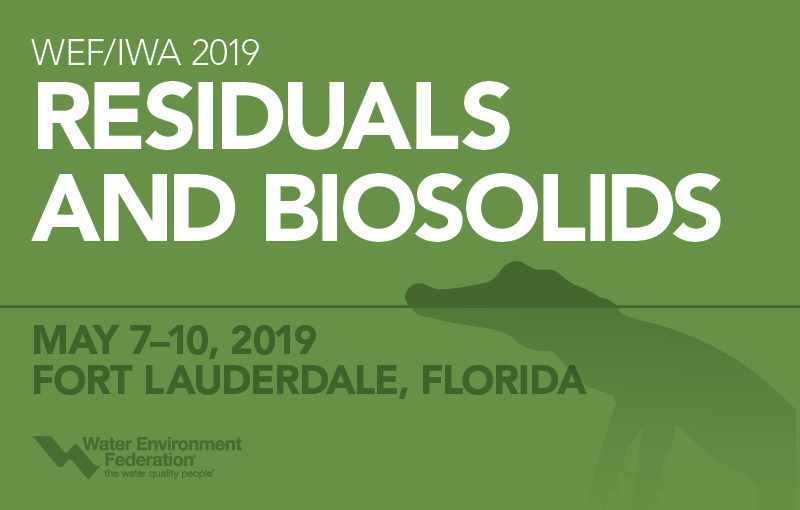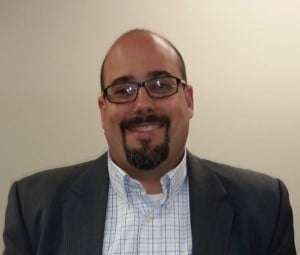Manny Moncholi, a WEF co-chair of the WEF/IWA Residuals and Biosolids Conference 2019, blogs about this popular conference with international flair.
With WEF’s renewed focus on Water’s Worth It and the rebranding of wastewater treatment facilities to water resource facilities (WRFs), there is more the water and wastewater utility can provide than renewing one natural resource. Many facilities are already taking progressive steps towards recovering less conventional resources. Among the focuses at this year’s WEF/IWA Residuals and Biosolids Conference is energy recovery through digestion from non-traditional waste streams. Attendees will learn about effective ways to process everyday food wastes into energy and the benefits they bring to our industry and the community.
Codigestion Workshops and Technical Sessions at WEF/IWA RBC 2019
More than 50 million tons of food waste and restaurant grease are landfilled in the United States each year. WRFs are turning these previously landfilled materials into feedstock for anaerobic digesters, in turn converting waste into methane in order to heat and power utilities and in some cases, surrounding institutions and businesses.
Come learn about the challenges of pre-processing food waste prior to digestion, hear the weird stories about all the off-spec and surplus food stuff that is being turned into a commodity and the regulatory drivers incentivizing and at times mandating utilities to take on these unusual waste streams and develop new technologies to unlock the benefits of the new resource streams.
Other conference highlights include:
- Incineration Technical Session: In addition to workshops and technical sessions on the impact of potential changes in biosolids regulations, advancements in sludge digestion, the economics of biosolids management programs, and the latest advances in sludge pre-condition, we will have a technical session that shows what was old can be new again. A number of utilities both in North America and around the globe are returning to biosolids incineration as a resilient and cost- effective means of biosolids disposal. Come to listen and participate in the discussion on how advancements in incineration and increasing local and national land application rules are driving utilities to a biosolids solution that has been in steady decline in north America in favor of land application and other beneficial uses.
- Spanish Language Technical Session and Panel Discussion: For the first time ever in a nod to the proximity of this year’s conference site to Latin America and in recognition of WEF’s joining with the International Water Association to develop and present this conference, we are hosting the first ever WEF Spanish Language Biosolids panel discussion and technical session. The focus will be an offering of newest technologies in biosolids treatment, case studies on local biosolids management practices, and biosolids project development in Latin America. Technical papers and panels hail from across the Americas and look forward to sharing a lively discussion on the future of biosolids with their fellow Spanish speakers. We hope to see you there or ¡Esperemos verte en Fort Lauderdale!



 Manuel Moncholi holds a bachelor's degree in chemical engineering from Stevens Institute of Technology in Hoboken, N.J., a master's degree in environmental engineering from Florida International University in Miami, and will earn a doctorate in civil engineering from Florida International University later this year for his work in biosolids research and its applicability in utility management. He has served in Miami-Dade County’s Water and Sewer Department for the past 15 years in a variety of roles in planning, capital improvement, and operations and maintenance stemming from his process engineering background in water and wastewater treatment. He holds a P.E. license in Florida, mentors the University of Miami chapter of Engineers Without Borders, is an avid, albeit lousy, golfer and a roller-derby enthusiast and non-skating official.
Manuel Moncholi holds a bachelor's degree in chemical engineering from Stevens Institute of Technology in Hoboken, N.J., a master's degree in environmental engineering from Florida International University in Miami, and will earn a doctorate in civil engineering from Florida International University later this year for his work in biosolids research and its applicability in utility management. He has served in Miami-Dade County’s Water and Sewer Department for the past 15 years in a variety of roles in planning, capital improvement, and operations and maintenance stemming from his process engineering background in water and wastewater treatment. He holds a P.E. license in Florida, mentors the University of Miami chapter of Engineers Without Borders, is an avid, albeit lousy, golfer and a roller-derby enthusiast and non-skating official.